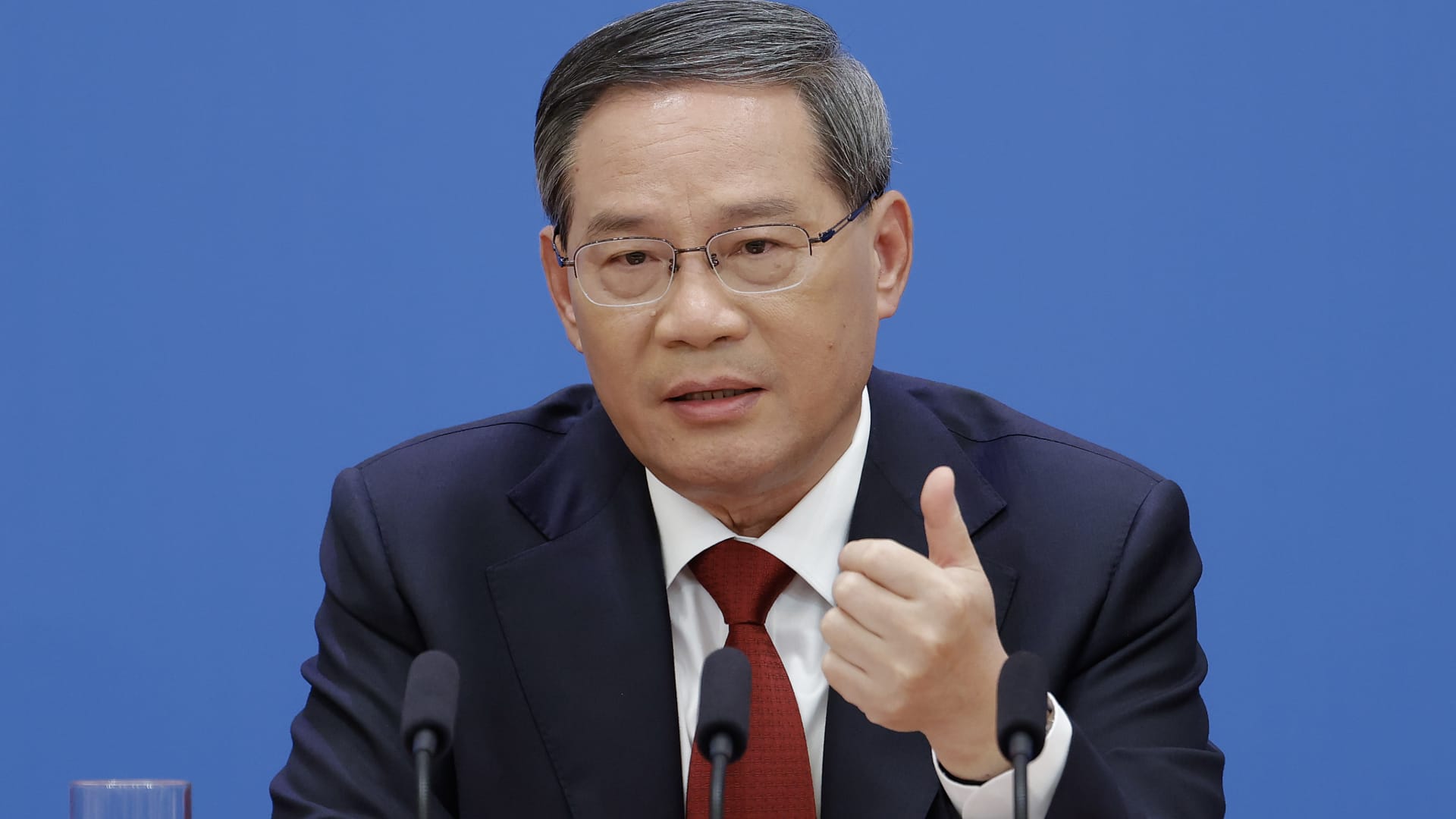A Chinese flag flutters on top of the Great Hall of the People ahead of the opening ceremony of the Belt and Road Forum (BRF), to mark 10th anniversary of the Belt and Road Initiative, in Beijing, China October 18, 2023.
Edgar Su | Reuters
BEIJING — China kicks off its annual parliamentary meetings this week, which investors are watching closely for signals on economic stimulus.
Beijing has already broken with tradition, with an announcement Monday that Premier Li Qiang would not hold the usual press conference at this year’s parliamentary meeting, and that such press meetings are canceled for the rest of the current congressional term, which would typically run for another three years.
The announcement noted there would be more ministry-level press conferences on the economy and foreign affairs, but did not say whether the foreign minister would hold a press conference as has been the case in past years. The premier’s press conference was seen as a rare chance to ask questions of high-level leadership and has reportedly not been canceled since 1993.
China’s gross domestic product grew by 5.2% in 2023, but overall recovery from the Covid-19 pandemic was slower than many had expected. A prolonged slump in the massive real estate market and falling global demand for Chinese exports have contributed to low levels of consumer and business sentiment.
That’s all led to questions over whether Beijing will step in with large-scale support. So far, authorities have been relatively reserved.
Beijing signaled in December that any new policy support would be “appropriate,” said Wang Jun, chief economist at Huatai Asset Management, adding “there’s no way” that stimulus would be as large as it was in 2008. That’s according to a CNBC translation of his Mandarin-language remarks.
China’s economic policy is typically set at an annual meeting in December by leaders within the ruling Communist Party of China.
The meetings this month, known as the “Two Sessions,” are at the government,…
Read the full article here

Leave a Reply